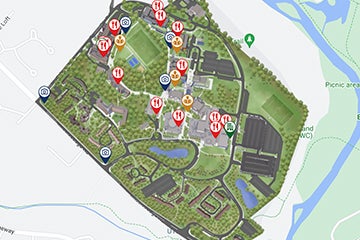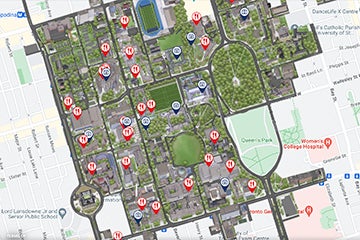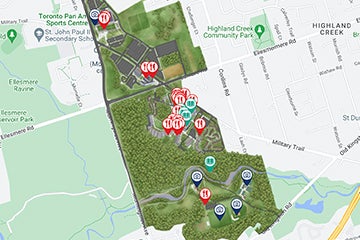We’re so happy you’re here
Welcome to UTogether — your U of T community roadmap. Whether you’re a student, faculty member, instructor, staff or librarian, we have supports, services, and opportunities to help you learn, grow, and succeed during your time with us. Take a tour of this resource and discover for yourself how our exciting campuses will enrich your journey.

Supports and services to help you succeed at U of T

The school year is wrapping up, and you're either studying for exams or finishing that final assignment. If you need help getting over this last hurdle, we have resources and supports to help you get there!
Essential resources for faculty, staff and librarians

We’ve compiled some important resources you’ll need as a university employee, including where to go for HR documents, administrative contacts, and the supports that are available to you. Faculty members and instructors, we’ve also provided some tools to help strengthen your teaching practice.
Plus, we’ve included places to eat or relax, how to navigate around campus, and ways to connect with like-minded colleagues.
Find your way with our interactive campus maps
Need help navigating our three campuses? Our helpful interactive maps will show you where to eat and study, apply for your TCard, and find supports and services. Tip: you can also use the maps on your phone — we have an app for that!
Catch up on U of T community news
Check us out on social media
We have so many great stories, tips, and events to share with you on our social media accounts. Follow our main campus accounts on your favourite app, or browse through the tri-campus social media directory to discover new faculty, division and campus life accounts for students and employees. They are bound to become indispensable during your time at #UofT.






